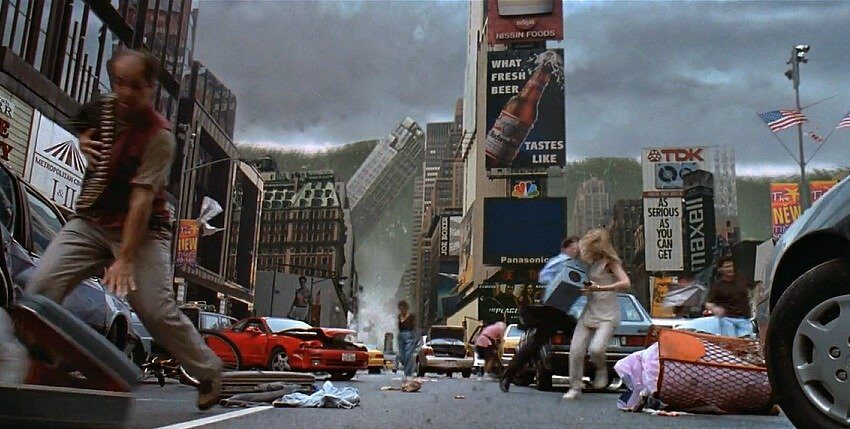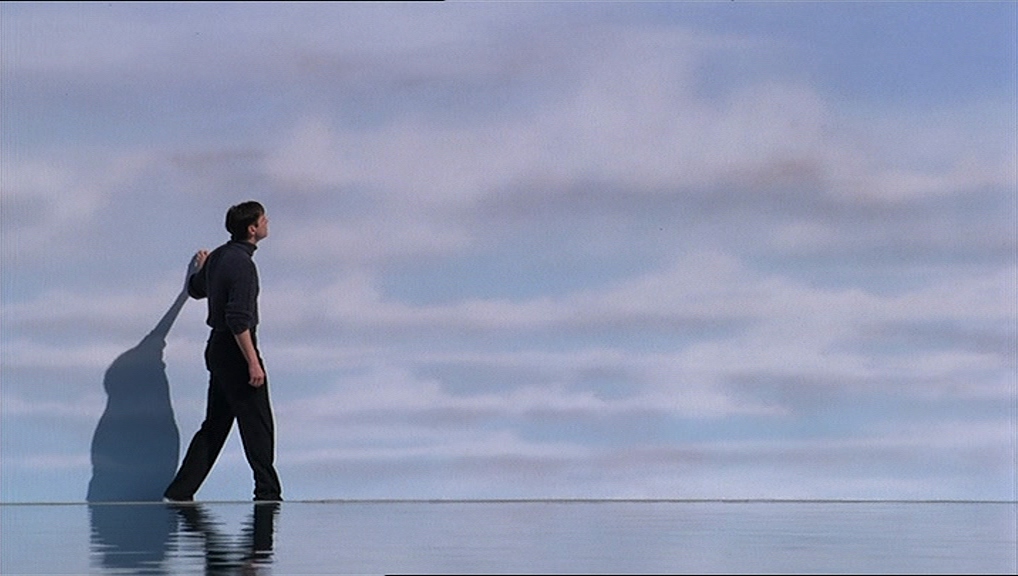
“Deep Impact” (1998) – Film Review

“Deep Impact” (1998), directed by Mimi Leder, endeavors to bring an apocalyptic nightmare to life, but instead, it often feels like a lackluster jaunt through a checklist of disaster movie clichés. Released in the same year as its louder, brasher cousin “Armageddon,” “Deep Impact” attempts to set itself apart with a more somber and scientifically grounded approach to the end-of-the-world scenario. However, in doing so, it often trades the thrill of disaster for a muddled narrative that can’t quite decide if it wants to be a human drama or a CGI spectacle.
Narrative: A Comet, a Crisis, and a Cavalcade of Subplots
The premise is straightforward enough: a comet is on a collision course with Earth, threatening to wipe out all life. The film interweaves multiple storylines, including that of a teenage astronomer Leo Biederman (Elijah Wood), who discovers the comet; journalist Jenny Lerner (Téa Leoni), who uncovers the story; and astronaut Spurgeon “Fish” Tanner (Robert Duvall), tasked with leading a mission to stop the comet.
The attempt to weave these various narratives together results in a plot that feels disjointed, as if the film is perpetually jumping between channels. Each storyline, rather than adding depth, often serves to dilute the overall impact of the narrative, leaving the viewer less invested in the fate of the world and more concerned with when the next comet-related disaster will finally kick in.
Behind the Scenes: The Mechanics of a Catastrophe
The making of “Deep Impact” involved significant efforts to balance scientific accuracy with cinematic spectacle. The film’s production team consulted with astronomers and NASA to lend authenticity to the space scenes, a move that is commendable but also highlights the film’s struggle to balance fact with fiction.
The special effects, while impressive, particularly in the portrayal of the comet and its impact, are often undermined by the film’s pacing and narrative structure. The scenes of destruction, meant to be the film’s climactic high points, are interspersed with lengthy dialogues and subplots that sap the momentum.
Performances: A Stellar Cast in Orbit Around a Weak Script
The film boasts an impressive cast, with the likes of Morgan Freeman as President Tom Beck and Vanessa Redgrave in a supporting role. However, the performances are often hampered by a script that fails to give the characters meaningful arcs. Freeman’s presidential portrayal is dignified but lacks the script necessary to make it memorable. Téa Leoni, saddled with a character whose emotional journey is as convoluted as the film’s plot, struggles to bring depth to the role of Jenny Lerner.
Cinematography and Score: Crafting the End of the World
Cinematographer Dietrich Lohmann captures the film’s disaster sequences with a keen eye for scale, effectively conveying the sheer enormity of the catastrophe. The score, composed by James Horner, provides an emotional undercurrent that attempts to elevate the film, though it often feels at odds with the film’s tonal inconsistencies.
Themes: Humanity, Heroism, and the Heavens
“Deep Impact” tries to tackle themes of humanity’s fragility in the face of cosmic threats and the nobility of sacrifice. However, these themes are lost in a script that’s more concerned with ticking off disaster movie tropes than exploring the deeper existential questions posed by its premise.
Cultural Impact: A Comet’s Tail in the Cinema Sky
In the grand scheme of disaster films, “Deep Impact” often finds itself overshadowed by more action-packed entries in the genre. Its attempt to take a more thoughtful, character-driven approach to the end-of-the-world scenario is commendable but ultimately fails to leave a lasting impact.
Final Thoughts
In essence, “Deep Impact” is a film that reaches for the stars but gets tangled in its own narrative web. It’s a movie that promises an exploration of humanity’s response to an existential threat but ends up delivering a fragmented story that struggles to resonate on an emotional level. While it may have the trappings of a blockbuster disaster film, it lacks the heart or the thrill to make it a truly memorable cinematic experience.




